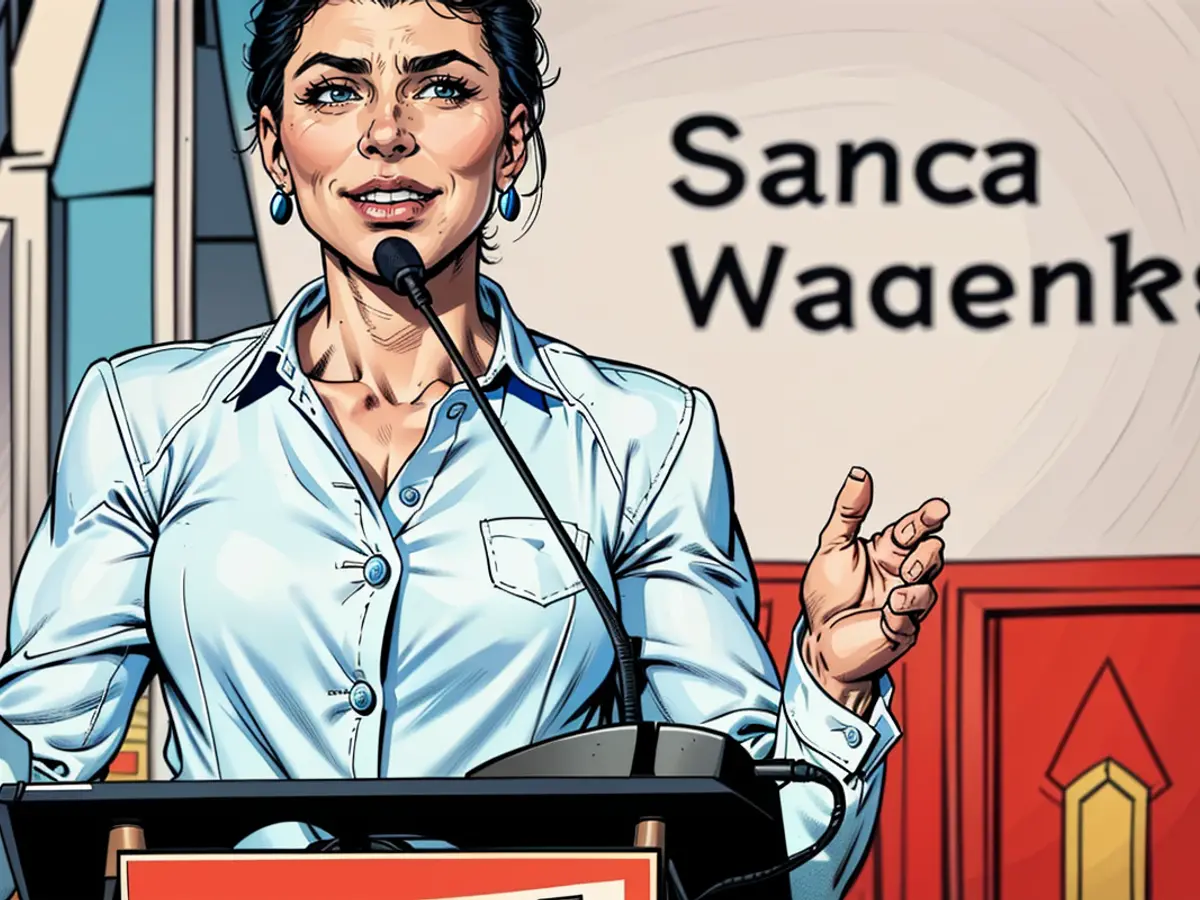Elections in Eastern Germany - The peace question is decisive for coalitions in BSW
A possible coalition between the Sahra Wagenknecht Alliance (BSW) and the CDU or other parties at the state level is still a long way off. BSW founder Sahra Wagenknecht makes the stance of partners on the war in Ukraine a condition for coalitions in Eastern Germany.
"We will only participate in a state government that also takes a clear federal position for diplomacy and against war preparations," said the chairwoman of the BSW Alliance to the German Press Agency. It is clear that "a new arms race consumes billions that are urgently needed for schools, hospitals, housing, and higher pensions."
The Saxon CDU responded promptly: "We clarify our things in Saxony ourselves and let ourselves not be dictated to by people from Berlin or elsewhere. We have had bad experiences with Saarlanders anyway," explained CDU General Secretary Alexander Dierks. He referred to the former East German State Council Chairman Erich Honecker (1912-1994), who came from the Saarland. The Saxon Minister-President Michael Kretschmer (CDU) was the first politician to speak out for diplomacy and a long-term relationship with Russia. "He has no explanation needed. Others do, however!"
In September, new state parliaments will be elected in Saxony, Thuringia, and Brandenburg. The Wagenknecht Party BSW focuses on education and migration, but also places the peace issue in the spotlight - and finds resonance in the three states with opinion poll ratings of 15 to 20 percent. The AfD also takes up this topic. Both parties are against arms deliveries to Ukraine and for immediate negotiations between Ukraine and Russia.
"The peace issue is very important," said Wagenknecht. "Many people are rightly concerned because the federal government is making our country more and more into a war party in the Ukraine war and so far has missed every attempt at diplomatic solutions." She also criticized the announcement of stationing US-American rockets in Germany in 2026. Federal Chancellor Olaf Scholz justified this as a reaction to a growing Russian threat.
- Sahra Wagenknecht, advocating for peace, has set a condition for coalitions in Eastern German states like Brandenburg, demanding partners to take a clear federal stance against war preparations.
- The BSW Alliance, led by Wagenknecht, insists on participating in state governments only if they support a federal position for diplomacy and oppose new arms races.
- In the upcoming September state elections in Saxony, Thuringia, and Brandenburg, the BSW Party, focused on education and migration, highlights the peace issue, gaining support with opinion poll ratings between 15 and 20%.
- Saxony's CDU, led by Michael Kretschmer, has been vocal in advocating for diplomacy and a long-term relationship with Russia, contrasting the federal government's stance on the Ukraine war.
- During the state election campaign, the CDU at the regional level has made it clear that they will not allow external influence, especially from Berlin, to dictate their policies.
- Wagenknecht and the BSW Alliance have found resonance in Thuringia, where the peace issue is a significant concern, as the federal government is perceived as turning Germany into a war party in the Ukraine conflict.
- The CDU's opposition to arms deliveries to Ukraine and support for immediate negotiations between Ukraine and Russia aligns with the BSW Alliance's stance on the peace question.
- The focus on the peace issue in Eastern Germany has also attracted the attention of far-right parties like the AfD, which shares similar views on avoiding arms deliveries to Ukraine and encouraging negotiations with Russia.
- Sahra Wagenknecht's stance on the peace question in Eastern Germany has brought renewed attention to the role of German politics in the Ukraine conflict, prompting discussions on war preparation and diplomatic solutions.
- The growing divide between the federal government and regional parties like the BSW Alliance and the CDU in Eastern Germany highlights the complexity of Germany's foreign policy and the role of regional dynamics in shaping the nation's stance on international issues.








